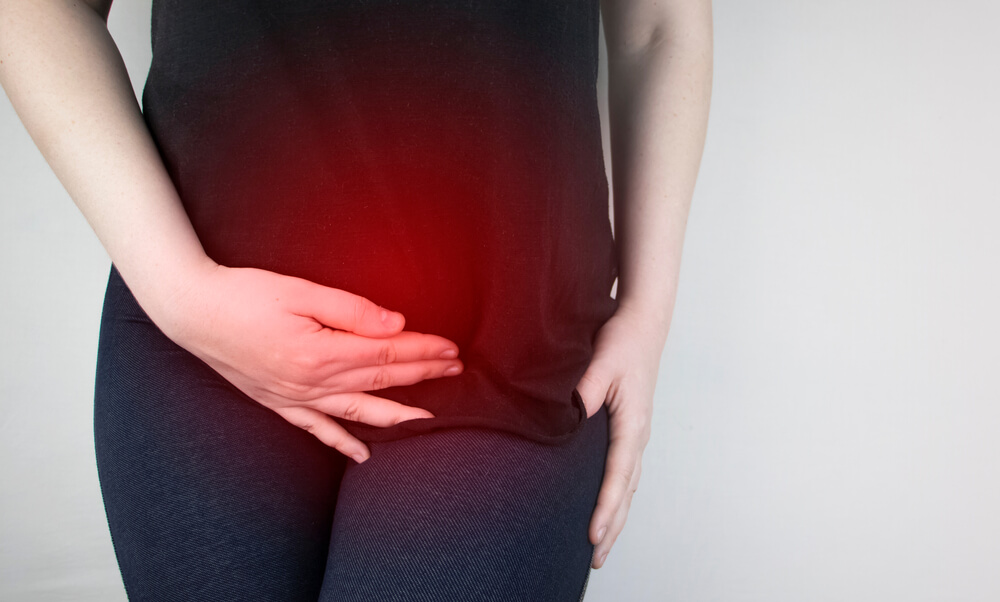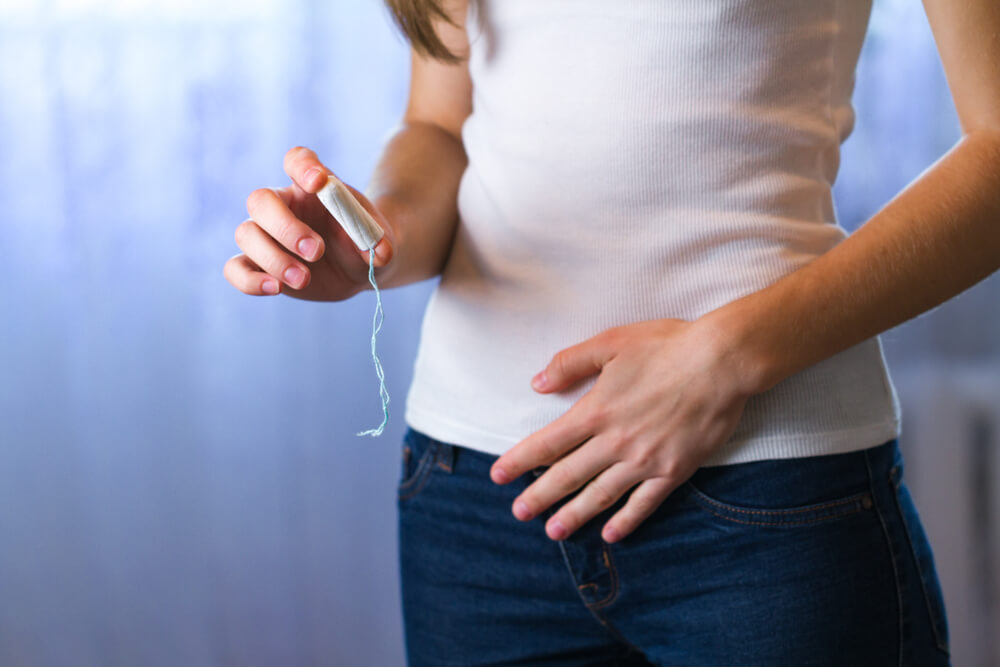Disclaimer: Please note that this blog is for educational purposes only, it includes general information on health-related topics. Women’s Healthcare of Boca Raton is giving medical advice to Patients Only. Follow this link to request an appointment with Dr. Ellman.
Ovulation occurs when the ovary releases an egg and some women experience bleeding and spotting around the time they are ovulating, which is a normal occurrence. In fact, it’s fairly common for women to spot or bleed at some point in their menstrual cycles. But when should you be concerned about bleeding during ovulation?
This blog post will explore the signs that indicate when ovulation spotting or bleeding is normal and when it is a sign of concern. It will also discuss the next steps that you can take if you are concerned about bleeding and spotting during ovulation.
What Is Ovulation Spotting?
Ovulation spotting is light vaginal bleeding that can occur during, before, or after ovulation. Not every woman has spotting during ovulation, but one study indicates that five percent of women experience mid-cycle spotting.
Ovulation bleeding occurs when there is a change in hormone levels. For example, estrogen levels decrease before the woman starts ovulating, and as a result, this causes the endometrium (uterus lining) to shed.
How to Identify Ovulation Bleeding

Ovulation spotting can occur in the middle of your cycle and usually outside your regular periods. That said, it is much lighter than your regular period as it lasts for one or two days. It is also light pink or dark brown in color.
That said, since period flows are heavier, they require you to wear a sanitary pad, tampon, or a menstrual cup. It usually lasts for 5-7 days and occurs every 21-35 days.
Some women may also experience mild menstrual-like pain during ovulation and an increase in cervical mucus discharge that becomes thin and stretchy.
You may also experience other symptoms of ovulation such as:
- Breast soreness and tenderness.
- Lower abdominal or pelvic pain.
- Increased sexual desire.
- Bloating.
- Changes in your body basal temperature.
- Increased heart rate.
Now that we have covered the factors that can help you identify ovulation bleeding, we can move on to the next section.
When Does Ovulation Bleeding Occur?
When you are ovulating, an ovary releases an egg, and this occurs in the middle of your menstrual cycle, between 11 to 21 days after the first day of your last period. Women do not always ovulate on the same days, as this depends on the length of their cycle.
We recommend tracking ovulation if you want to get pregnant – some women also do this if they want to prevent pregnancy. However, ovulation spotting can also be a sign that you can conceive.
The thing is that an egg is only available for 12-24 hours for fertilization, and you are fertile for five days each month, as sperm can live in the body for three to five days. This means that you can still get pregnant if you have unprotected sex four days before your ovulation, but the chances of becoming pregnant the day after you ovulate are low.
Spotting after ovulation can also be implantation spotting, which occurs when the fertilized egg attaches to the uterus’ inner wall. This is one of the earliest signs that some women experience when they get pregnant, resulting in light brown or pink spotting, which lasts for two days.
When Is Spotting During Ovulation Considered Normal?
There are some signs that can help you determine whether your bleeding during ovulation is normal or a cause for concern.
First of all, it’s essential to keep in mind that ovulation bleeding occurs only once during each cycle.
Before you start ovulating, you experience an increase in estrogen levels, which then drop after ovulation. As a result, progesterone levels rise for five days.
This fluctuation in estrogen and progesterone is what causes ovulation spotting. Some women do experience other symptoms, which shouldn’t be a cause for concern if they are mild. However, if symptoms are severe, we recommend seeing a doctor as there could be an underlying factor causing spotting between periods.
When Bleeding During Ovulation Is a Sign of Concern
If your ovulation spotting or bleeding does not occur during the ovulatory window, that is 11-21 days after the first day of your last period, then something is not right.
If you are experiencing heavy, severe, and prolonged bleeding, we recommend seeing a doctor to provide you with a diagnosis.
The physician may ask about your medical history as some health conditions can cause abnormal bleeding between periods. It would also be helpful to make a note of the color and consistency of the bleeding you are experiencing.
Health Conditions and Bleeding Between Periods

Besides ovulation, some health conditions can cause bleeding between periods.
Let’s have a look:
-
- Pre-menarche spotting: Happens prior to your first menstruation, and it is harmless.
- Polycystic ovary syndrome (PCOS): It is an endocrine disorder that causes small unruptured cysts to develop on the ovaries. The patient may have a hormonal imbalance and may not experience ovulation – As a result, these can cause mid-cycle bleeding.
- Ectopic pregnancy: When a woman has an ectopic pregnancy, the fertilized egg grows outside the uterus, which can cause bleeding between periods. The patient may also need to undergo emergency treatment.
- Kidney or liver disease: These can cause abnormal bleeding.
- Thyroid issues: The thyroid releases hormones that regulate women’s menstrual cycle, but having high or low thyroid levels can cause bleeding between periods.
- Perimenopause: If you are over the age of 40 and have abnormal vaginal bleeding, this could be a sign of perimenopause.
Spotting between periods can also be a sign of infection. If you have a sexually transmitted infection (STI) such as human papillomavirus (HPV), gonorrhea, and chlamydia you have a high chance of having light bleeding.
That said, if you’ve had unprotected sex and have noticed bleeding or spotting, we advise you to consult your doctor. If left untreated, STIs can cause serious reproductive complications, such as infertility.
It’s also important to seek medical help if you think that any of these conditions are causing you to bleed between periods:
- Pelvic infection.
- Forgotten tampon.
- Some medications such as breast cancer treatment and hormonal birth control. However, if you have just started taking hormonal birth control, it’s common to experience some spotting in the first three months).
- Reproductive cancer.
- Precancerous diseases of the cervix and uterus can cause bleeding. If you are between the ages of 25-70 we recommend having a smear test every three years. Uterine cancer is more common in postmenopausal women, but you should consult your physician if you are experiencing abnormal bleeding.
Book Your Appointment Today
Sometimes it is hard to tell whether the bleeding you are experiencing between periods is considered normal or is a sign of concern. If you are experiencing light spotting that isn’t severe during the ovulatory window and occurs once during each cycle, then you probably have nothing to worry about, but it doesn’t hurt to check it and be sure, especially if you are considering getting pregnant.
If you have other health conditions, you may also be spotting between periods.
If you have any concerns or want to learn more about your cycle, book your appointment with our gynecology specialist today.

Dr. Ellman is a Board Certified OBGYN who established his medical practice in South Florida over 25 years ago. His office, Women’s Healthcare of Boca Raton, is located in Boca Raton, Florida at West Boca Medical Center. Dr. Ellman attended Albert Einstein College of Medicine of Yeshiva University, where he received his medical degree. He went on to intern at Beth Israel Hospital in Boston- an affiliate of Harvard Medical School- and continued his residency at North Shore University Hospital in Manhasset, New York- an affiliate of Cornell Medical School.
Dr. Ellman has practiced Obstetrics and Gynecology in the Boca Raton area since 1995. In addition to treating patients at West Boca Hospital, Dr. Ellman also treats patients through his own private practice, Women’s Healthcare of Boca Raton, located on the West Boca Medical Campus.

